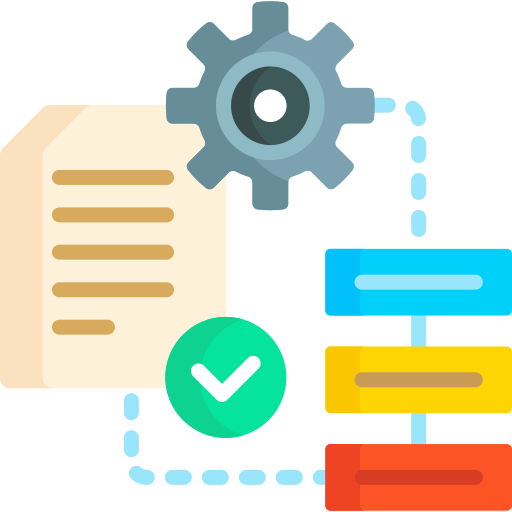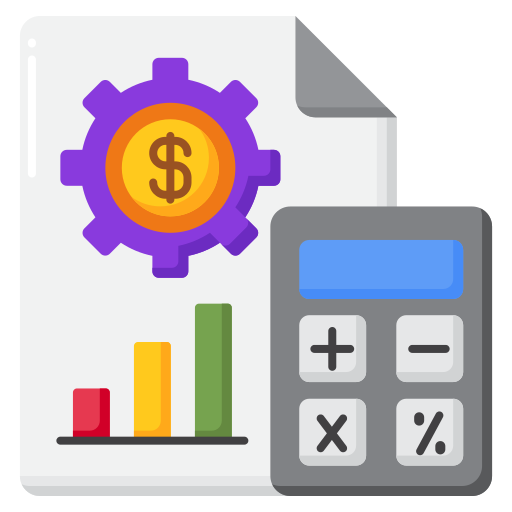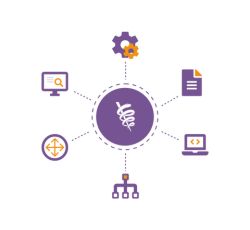Project Accounting
Project accounting is a specialized branch of accounting that focuses on tracking and managing the financial aspects of a specific project throughout its lifecycle. It includes budgeting, forecasting and monitoring costs associated with the project to ensure that it remains within budget and meets financial objectives. Project accountants analyze financial data related to the project, such as expenses, revenues and resource allocation, in order to provide insights of the financial performance. This type of accounting is essential for effective project management, as it helps stakeholders understand the financial implications of their decisions and ensures that resources are utilized efficiently.
Moreover, project accounting plays a vital role in reporting and compliance. It ensures that all financial transactions related to the project are accurately recorded and reported in accordance with relevant regulations and standards. This transparency is essential for stakeholders, including investors, project managers and regulatory bodies, as it builds trust and accountability. It also helps in identifying potential financial risks early on, allowing for timely interventions and adjustments to keep the project on track.
Importance of Project Accounting
The importance of project accounting can be highlighted through the following points:
1. Financial Control: Project accounting allows project managers to have a clear view of all financial transactions related to a project. By tracking expenses and revenues in real-time, managers can identify any discrepancies and take corrective actions promptly, helping them prevent budget overruns and ensure that the project remains financially achievable.
2. Budgeting and Forecasting: Effective project accounting involves creating detailed budgets based on project plans. This process includes estimating costs for labor, materials and other resources. Regular comparison of actual spending against the budget enables project managers to make informed forecasts about future expenses, allowing for better financial planning and adjustments as necessary.
3. Performance Measurement: Project accounting provides tools to measure the financial performance of a project. These evaluations help in assessing whether the project is meeting its financial goals and objectives. By analyzing, managers can determine areas that need improvement and make data-driven decisions to enhance project performance.
4. Resource Optimization: Effective project accounting enables organizations in allocating resources efficiently. Financial data analysis facilitates identification of resources that are underutilized or overallocated. This insight allows for better resource management, ensuring that funds and materials are used effectively to achieve project goals.
5. Stakeholder Communication: Regular financial updates and reports generated through project accounting enhance communication with stakeholders, including clients, team members and executives. Clear and concise financial information supports project managers to keep stakeholders informed about the financial status of the project, fostering collaboration and support.
6. Enhanced Project Success: Effective project accounting contributes to the successful completion of projects. By ensuring that projects are delivered on time and within budget, organizations can achieve their objectives and maximize return on investment. This success builds a positive reputation and can lead to more opportunities for future projects.
7. Change Order Management: Projects often experience changes in scope, which can impact costs. Project accounting allows for effective tracking and management of change orders. By documenting the financial implications of these changes, project managers can assess their impact on the overall budget and timeline, facilitating better decision-making.
8. Long-term Strategic Planning: Project accounting supports long-term strategic planning by providing insights into how current projects align with the goals of the organization. This alignment ensures that resources are directed toward initiatives that support the overall vision of the organization.
These points highlight how project accounting is essential not only for individual projects but also for the overall health and strategic direction of an organization.
Features of Project Accounting
Project accounting is a specialized area of accounting that focuses on the financial aspects of specific projects. Here are some key features:
1. Cost Tracking: One of the crucial aspects of project accounting is the ability to track costs precisely. This covers both direct expenses like labor and supplies as well as indirect expenses like overhead. By continuously monitoring these costs, project managers can identify variations between actual spending and the budget, enabling timely corrective actions.
2. Revenue Recognition: In project accounting, revenue recognition is essential for accurately reflecting the project's financial health. Depending on the nature of the project, revenue can be recognized at different stages like completion of specific milestones or based on the percentage of the project completed. This ensures that financial statements provide a true picture of the project's profitability.
3. Time Tracking: Accurate time tracking is vital for projects, especially those billed on an hourly basis. Project accounting systems often include tools for logging hours worked by team members on specific tasks. This helps with proper customer billing as well as productivity and resource allocation assessments.
4. Integration with Other Systems: Many project accounting systems can integrate effortlessly with other financial and project management tools. This integration allows for a comprehensive view of both project-specific and overall organizational finances, facilitating better decision-making.
5. Compliance and Audit Trails: Maintaining compliance with regulatory standards is critical in project accounting. The systems provide detailed records of all financial transactions related to a project, ensuring transparency and accountability. This audit tracking is essential for internal reviews and external audits.
6. Change Order Management: Projects often undergo changes that can affect budgets and timelines. Project accounting includes features that help in managing change orders efficiently, allowing project managers to adjust budgets and schedules as necessary. This flexibility is essential for adapting to evolving project requirements.
7. Customization and Scalability: Project accounting systems can often be customized to fulfill the specific needs of an organization or project type. They can scale as the organization grows by accommodating more complex projects or a larger volume of projects over time.
8. Historical Data Analysis: Project accounting allows organizations to maintain historical data from past projects, which can be invaluable for future planning. Analyzing this data helps identify trends, best practices and areas for improvement, ultimately enhancing the accuracy of future project estimates and budgets.
Project accounting plays a crucial role in managing the financial aspects of projects, enabling better planning, monitoring and reporting, which ultimately contributes to the overall success of projects.
Project Accounting by Meru Accounting
1. Comprehensive Financial Management
- Assists in managing the financial aspects of projects from initiation to completion.
- Tracks costs, revenues and resources associated with each project to ensure accurate financial oversight.
2. Advanced Accounting Techniques
- Implements advanced accounting methods and software to record and monitor all financial transactions.
- Ensures accuracy and transparency in financial data, enabling project managers to maintain control over budgets.
3. Accurate Budgeting and Forecasting
- Works closely with clients to establish realistic budgets based on detailed project plans.
- Continuously analyzes financial data to compare actual performance with budgeted expectations.
4. Regular Financial Reporting
- Provides regular financial reports highlighting key performance indicators.
- Facilitates transparent communication among stakeholders by providing financial insights.
5. Compliance and Reporting Support
- Ensures that all financial activities comply with industry regulations and standards.
- Helps maintain transparency and accountability, especially for projects involving multiple stakeholders.
6. Risk Reduction
- Thorough documentation and analysis help clients navigate complex financial landscapes.
- Reduces risks associated with financial mismanagement and enhances the likelihood of project success.
7. Empowerment for Quality Delivery
- Simplifies financial management, allowing clients to focus on delivering quality outcomes for their projects.
- Enhances project success by providing clear financial insights and ensuring compliance.
These project accounting services by Meru Accounting ensure efficient financial management, enhance project performance and promote overall project success.
Services Provided by Meru Accounting
Meru Accounting provides several services in the context of project accounting, including:
- Budgeting and Forecasting: Assisting clients in creating detailed project budgets and financial forecasts to ensure accurate financial planning and resource allocation.
- Cost Tracking and Analysis: Monitoring project expenditures in real-time, analyzing costs against budgets, and identifying variances to help manage project financials effectively.
- Revenue Recognition: Implementing proper revenue recognition methods in compliance with accounting standards, ensuring that income is recorded accurately based on project milestones.
- Project Reporting: Generating comprehensive financial reports that provide insights into project performance, including profit and loss statements, cash flow reports, and progress tracking.
- Resource Allocation: Helping clients optimize resource utilization by tracking labor, materials, and other project-related costs to ensure efficient operations.
- Risk Management: Identifying potential financial risks associated with projects and developing strategies to mitigate these risks.
- Contract Management: Assisting with the financial aspects of contracts, including negotiation, compliance, and ensuring that all terms are met from a financial perspective.
- Performance Metrics: Establishing key performance indicators (KPIs) to evaluate project success and financial health, facilitating informed decision-making.
- Financial Compliance: Ensuring all project accounting practices comply with relevant regulations and standards, minimizing the risk of penalties or legal issues.
- Consultation and Advisory Services: Providing expert advice on best practices in project accounting, including software selection and implementation, to enhance financial management capabilities.
These services help organizations effectively manage project finances, ensuring successful project delivery within budget and time constraints.
Conclusion
Effective project accounting is crucial for financial oversight and success, and Meru Accounting excels in delivering tailored project accounting services that empower clients throughout their project lifecycles. By utilizing advanced accounting techniques, precise budgeting and forecasting, and real-time cost tracking, we ensure transparency and compliance with industry regulations, fostering trust among stakeholders. Our focus on risk management and resource optimization not only helps mitigate financial pitfalls but also positions clients for sustainable growth. With our expertise, organizations gain the insights and tools necessary to make informed decisions, driving project performance and profitability while achieving their strategic goals.
Our Bookkeeping And Writeup Process

Your Need
Search the Service You need

Enquiry
For enquiring make a call or mail us

Confirm
Get your Quote and confirm us

Stay Calm
Feel free and Relax Yourself

Effective budgeting and forecasting are crucial elements of strategic financial management, offering a structured pathway to business success.
Read MoreStarting a new business is exciting and it’s full of opportunities and challenges. At Meru Accounting, we understand the complexity involved and we provide comprehensive Business Start-Up ...
Read MoreCost control and reduction strategies are important elements of any organization's financial management structure. In the competitive marketplace, businesses must precisely manage their expe...
Read More
Due diligence services refer to a set of investigative procedures and assessments conducted by professionals, typically in accounting, finance, law, or consulting fields, to evaluate a business,...
Read More
Risk management is a crucial process employed by organizations to identify, assess, and prioritize potential risks that could hinder their objectives.
Read More
Business Process Optimization (BPO) is a strategic approach aimed at enhancing efficiency, reducing costs, and improving overall performance within organizations.
Read More
Financial restructuring is a strategic process that involves reorganizing a company’s financial framework to improve its stability and performance.
Read More
Although launching a business is an exciting endeavour, there are risks and difficulties associated with it. Effective financial management is essential to the success of every start-up, and it ...
Read More
Performance and improvement consulting is pivotal for businesses seeking to optimize operations and achieve sustainable growth.
Read More
Forensic accounting is a specialized area of accounting that involves investigation of financial records to detect fraud, theft, or other financial crimes.
Read More
Software implementation is a vital phase in the lifecycle of any software application. It involves a series of steps designed to ensure that the software is correctly installed and configured to...
Read More
Project accounting is a specialized branch of accounting that focuses on tracking and managing the financial aspects of a specific project throughout its lifecycle.
Read More
In the modern business environment, companies are increasingly recognizing the importance of nurturing not just the professional growth but also the financial well-being of their employees.
Read More
Handling accounts payable is an essential part of managing a business’s finances. It involves tracking and paying invoices, maintaining good vendor relationships, and ensuring cash flow re...
Read More
Medical billing plays a very central role in the healthcare area.
Read More
Patient registration is the first and the most important when a person steps into a hospital, clinic, or any medical facility.
Read More
Insurance verification is among the most integral steps in medical billing. Before providing even a single health service,
Read More
Medical coding refers to the procedure of converting diagnoses, procedures, medical service, and other forms of medical equipment into...
Read More
Claim submission is one of the key processes in health care because this ensures that service providers get remunerated on time.
Read More
Payment posting would be one of the most significant steps in any medical billing cycle so that healthcare providers will get paid for...
Read More
Denial management is one of the important processes in medical billing because it makes sure that the providers of health services...
Read More
Reporting and analytics are crucial parts of medical billing. They will help healthcare providers follow up on the financial performan...
Read More

